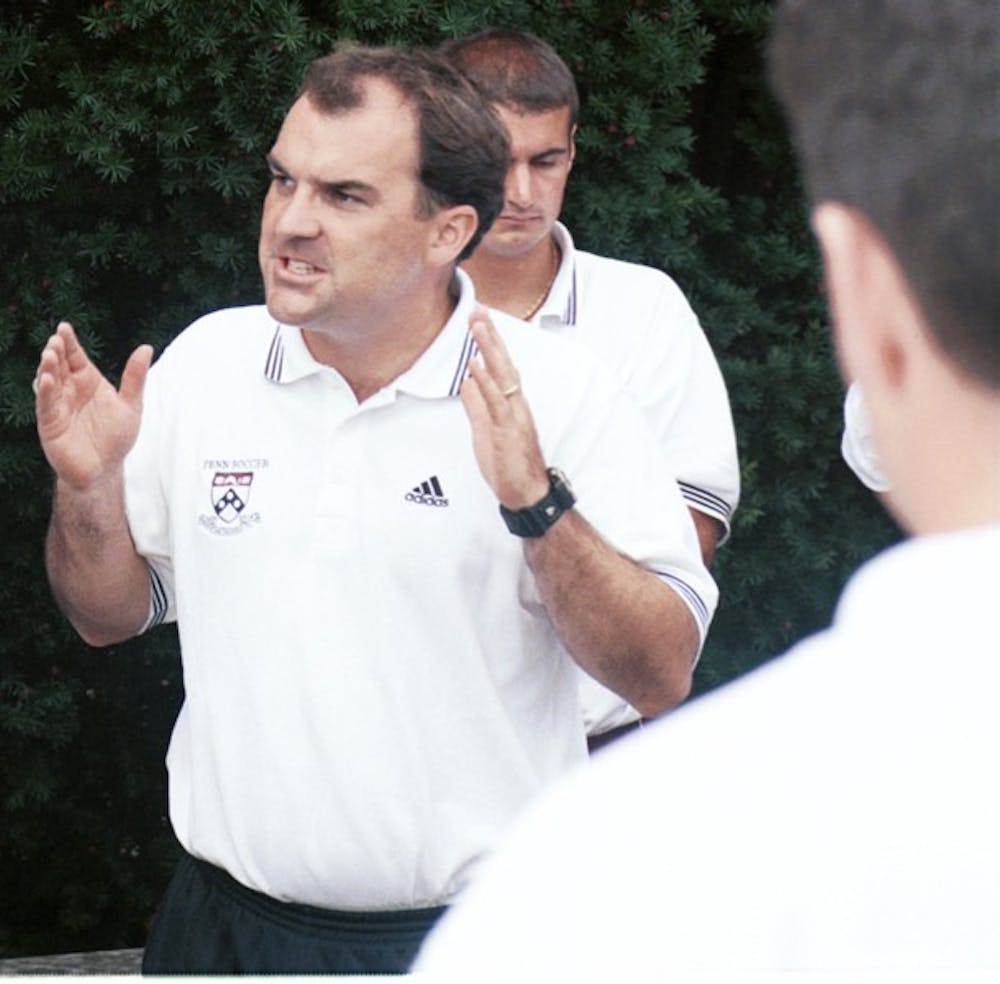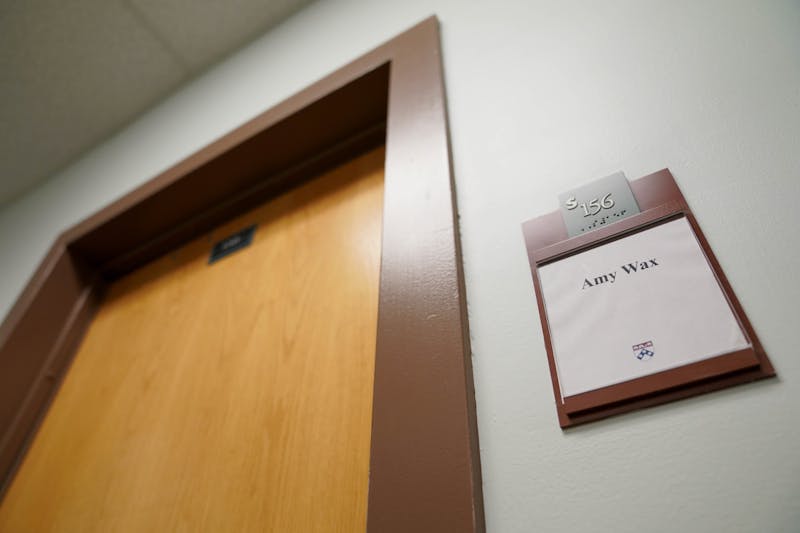
F or the past few weeks, one thing has been on the mind of everyone involved with the Penn men’s soccer program: finishing games.
The Quakers have played a notoriously tough schedule, having faced off against three ranked teams and a fourth that was ranked as recently as last week.
And while coach Rudy Fuller prides himself on creating a challenging nonconference schedule to prepare his team for Ivy League play, it’s certainly exposed a weakness for the Red and Blue.
This weekend’s loss to Columbia was just the most recent example. After going ahead 1-0 in the 21st minute, the Quakers couldn’t find a way to fully separate themselves from the Lions, and two second-half goals later, Columbia pulled away with the win.
Against then No. 12 American, the Red and Blue were tied, 1-1, until an 88th minute goal by the Eagles downed the Quakers. Against then No. 10 Washington, the story was nearly identical, with 86th and 90th minute goals putting the Huskies ahead for a 3-1 victory.
For Penn to be successful down the stretch this season, the team will have to find some way to hang onto those close games in the second half and get out with points — whether it’s a tie or a win.
It doesn’t matter if you can hang with a nationally ranked opponent for 90 percent of the game if you can’t finish what you’ve started. People measure teams in wins and losses (and draws), not in what could have been.
Likewise, closing out games is going to prove integral to the team’s hopes of defending their Ivy League title.
After all, the loss to Columbia sets the Quakers back a notch in the league standings. Thus far, Harvard and Dartmouth have separated themselves from the pack.
Both teams sit tied atop the Ivy League standings with six points and have boasted strong results in nonconference play. Dartmouth’s only losses have come against a pair of ranked teams in Notre Dame and Indiana, while the Crimson are on a seven game winning streak after dropping their first three to nonconference foes.
Penn will likely need to find a way to get points against both to keep its title hopes alive.
On the Quakers’ side, it’s impossible to pinpoint exactly what the root of the problem is. Whether it’s a lack of offensive intensity after pulling ahead early in a match, or an inability to maintain a gameplan for the full 90 minutes, something needs to change.
Fuller and his staff know this as well as anyone. In the midst of his 17th season with the Quakers, Fuller has coached teams that have posed all sorts of challenges and knows the importance of midseason coaching changes.
Even more importantly, Fuller knows that a loss in the Ivies to a team Penn was expected to beat doesn’t mean the season is over. Last season, the Quakers suffered a late season loss to Brown but managed to pick up key wins in their final two games to finish with a 5-1-1 league record and the title.
But a second loss? History shows it to be pretty devastating to a team’s title chances. Since 1955 (when Ivy League soccer began round robin play), the Ivy League champion has suffered two losses only twice.
With that in mind, all the more importance is placed on this weekend’s matchup against the Big Green.
If Fuller and his team plan to fully contend for the Ivy League title as they had hoped to prior to the season, they need to find a way to close out games. It starts this weekend against Dartmouth — a loss could push the Quakers out of contention.
The Daily Pennsylvanian is an independent, student-run newspaper. Please consider making a donation to support the coverage that shapes the University. Your generosity ensures a future of strong journalism at Penn.
DonatePlease note All comments are eligible for publication in The Daily Pennsylvanian.







